'I couldn't have asked for a better retired life.'
'Of course, it would have been better if I made some profit out of farming!'
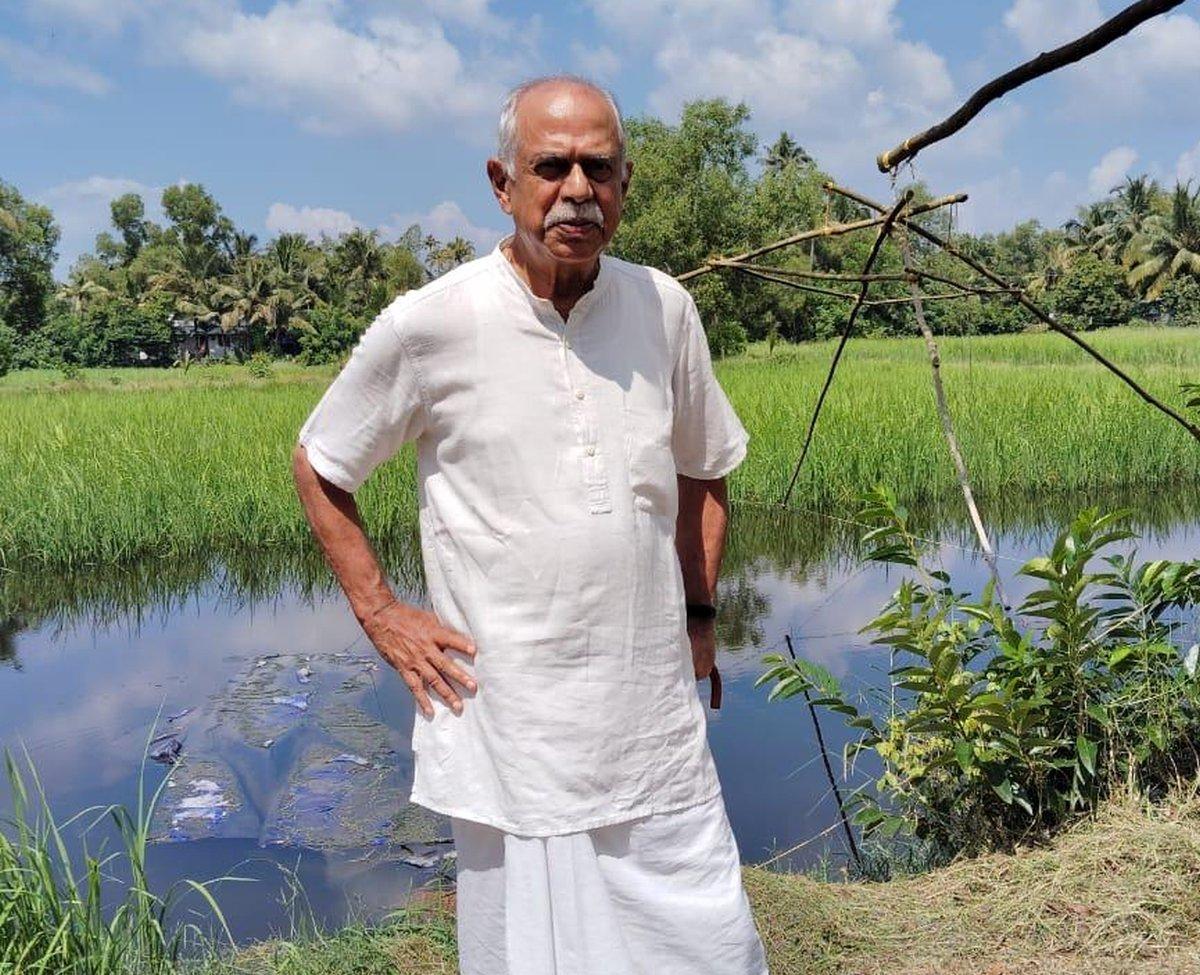
This 1968 batch Indian Police Service officer headed Research and Analysis Wing, India's external intelligence agency, from 2005 to 2007.
Now, at the age of 80, he is a farmer cultivating paddy, shrimp and coconuts.
That is P K Hormis Tharakan for you.
"As there are no young people, those who come for harvesting are ladies who went to school with me! And I am 80 years old,", the retired spymaster tells Rediff.com's Shobha Warrier in a rare interview.
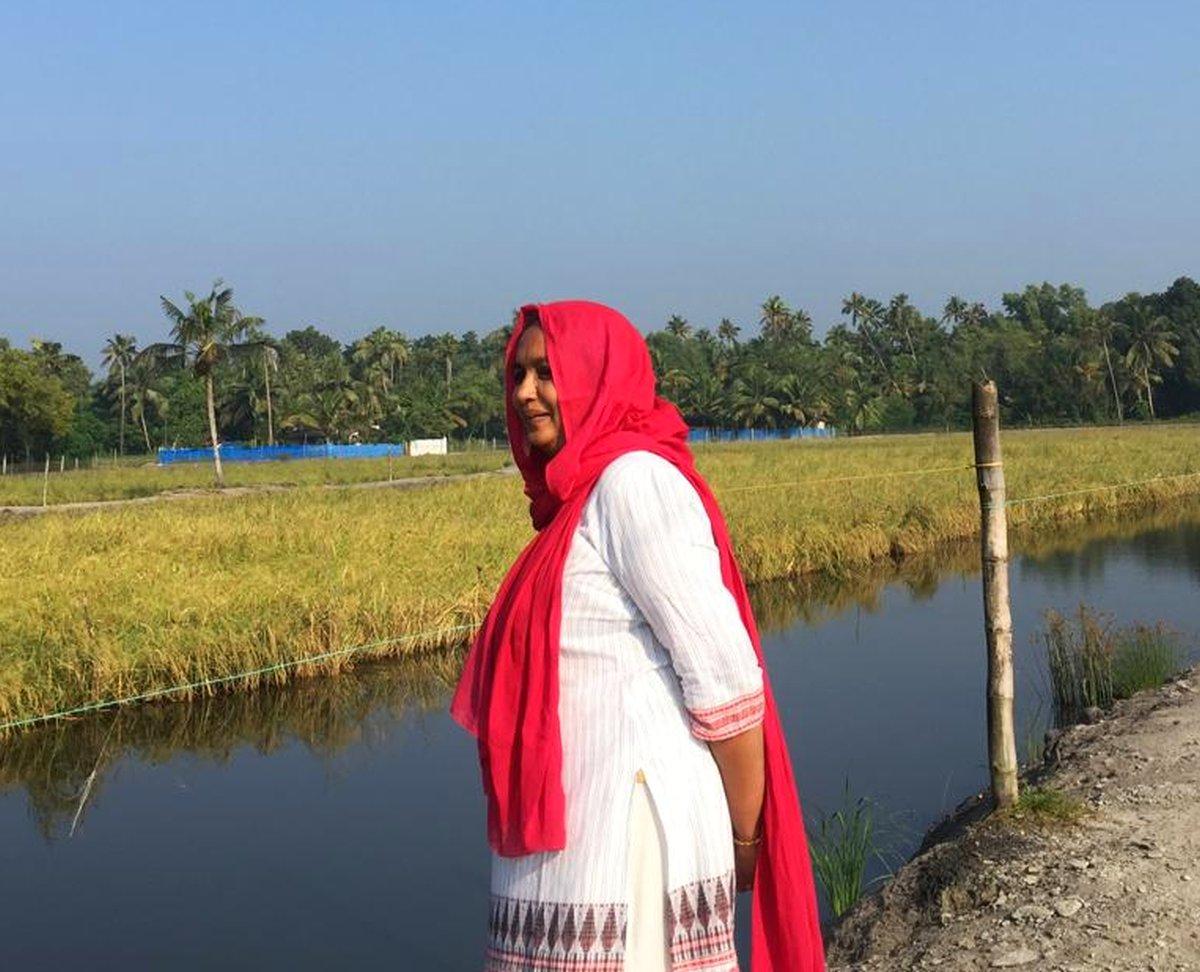
From gathering intelligence to farming in your village.. Was it at the back of your mind always to come back to Kerala and find your roots?
I always wanted to come back. There was no doubt about that.
I finished school in my village and moved to Madras to study in college at the age of 16, but I carried fond memories of my village with me.
After my studies, I was in government service as an IPS officer. Though I was from the Kerala cadre, I served the Government of India for 25 years. During this period, I worked mostly in various parts of India.
I came back to the Kerala police and was the state police chief. In 2005, I left Kerala again to be the chief of R&AW.
After that, I was in Bangalore as the advisor to the governor.
Even after the assignment, I stayed on in Bangalore till 2014. While I was in Bangalore, I built a house next to our tharavadu (ancestral home).
I come from a farming family, and we have farming land in Alappuzha and our tharavadu also which went to my younger brother after partition.
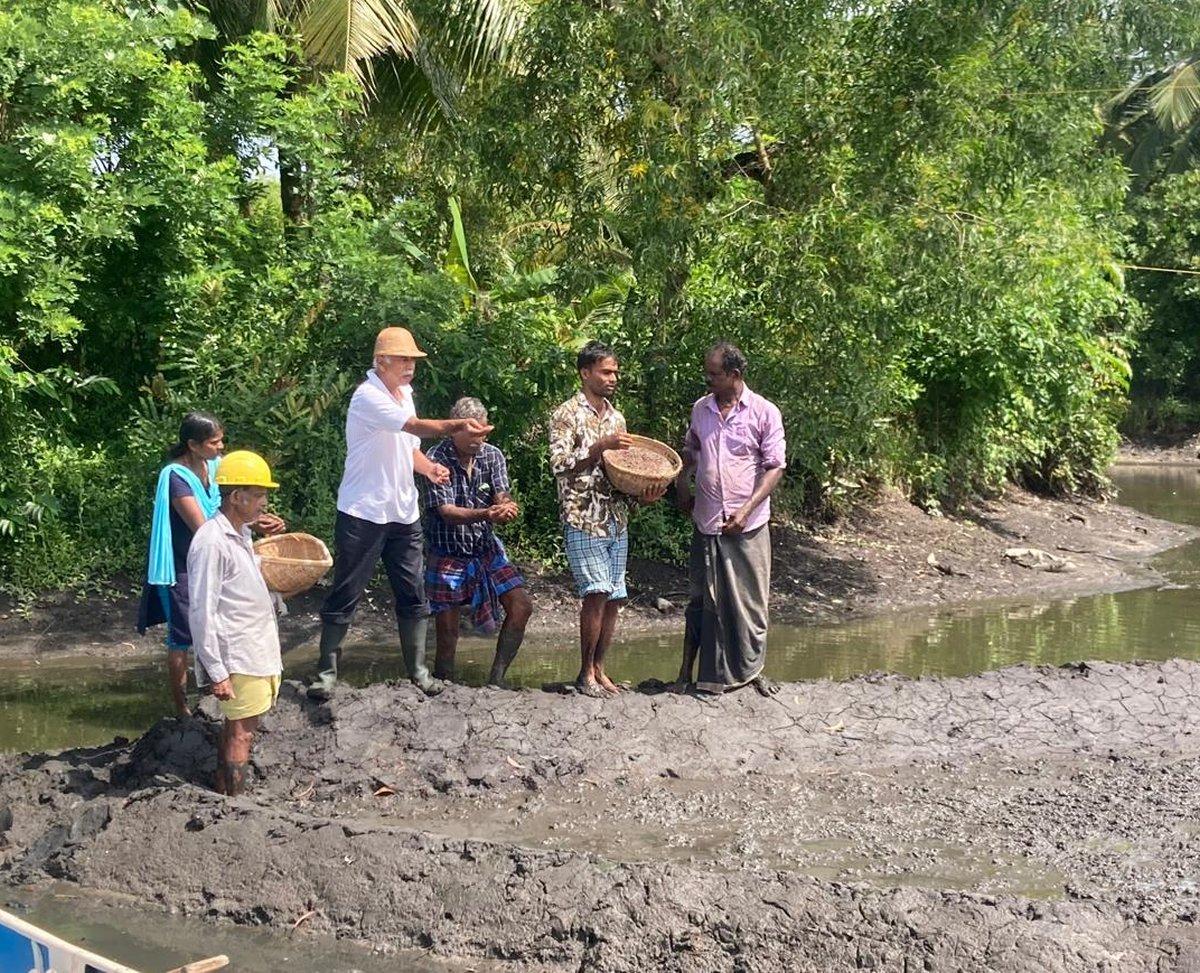
Did you have any memories of farming from your childhood days since you left your village at 16?
Of course, I had. My father was a hands-on farmer and he cultivated paddy and coconut.
I used to accompany him to the fields on holidays. I also remember going in boats with him.
I must admit I was not so fond of farming at that age; I was more fond of reading and playing games.
But I have very fond memories of the harvest time which was more like a festival with lots of singing. Harvest was and is always accompanied by music.
I feel we are blessed to be born in this land. I could have settled down in Delhi or Bangalore, or even Kochi. But I wanted to come back here.
It is true I inherited 10 acres of land.
Imagine buying land in Delhi or Kochi or Bangalore! It would have been so expensive. So, economically also, it was a sound decision.
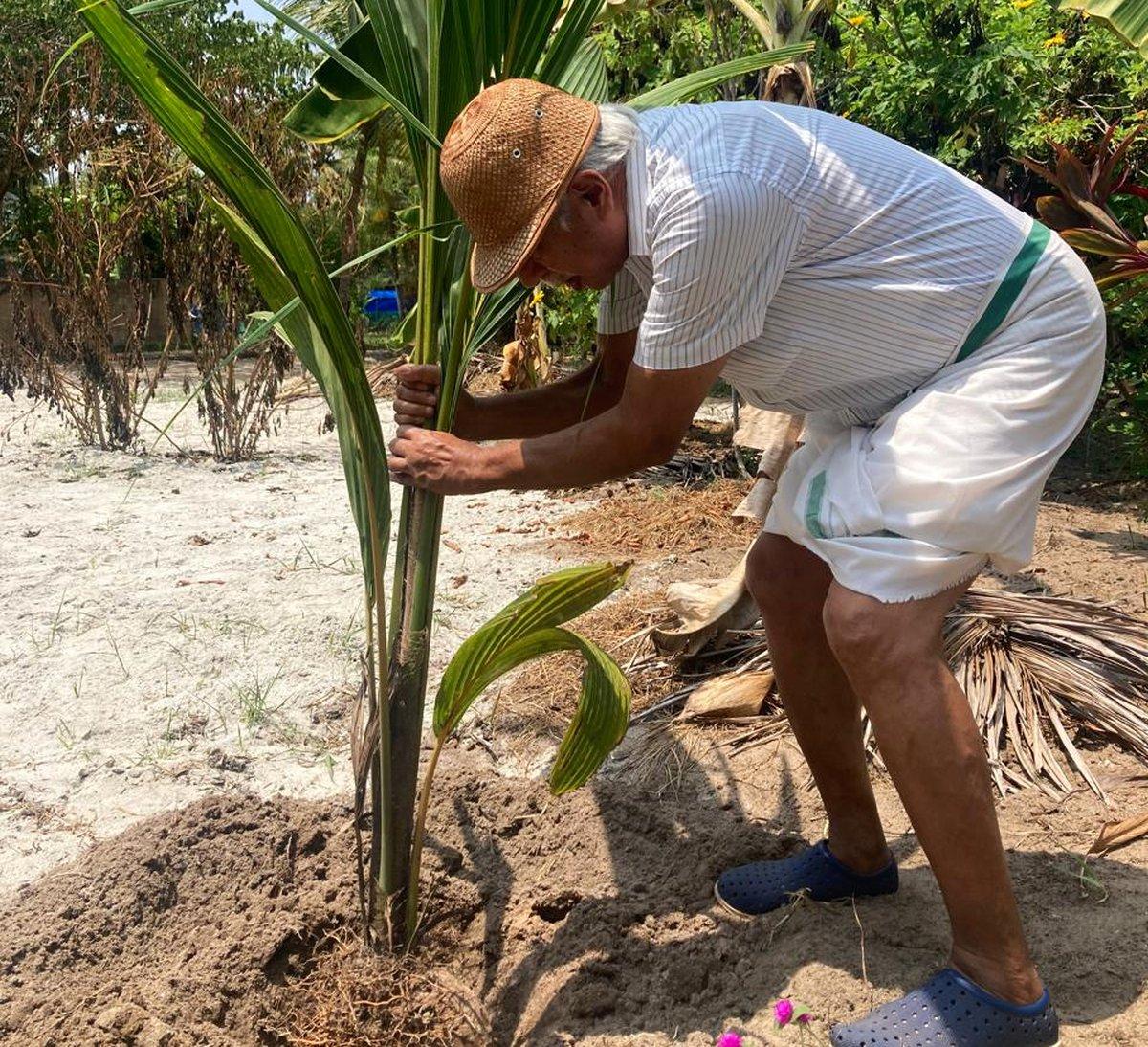
Was it just to live where you spent your childhood that you came back, or did you want to do farming?
We are eight brothers, but all of us went out to work. As our father had died young in 1959, it was our mother who took care of the farm for some time.
Then the land reforms came, and it affected us. But the interesting thing was, as we were eight of us, each of us were entitled to a piece of land.
So, after the reforms, we got 80 acres of land. But not one of us was there to look after the land or continue farming.
Years later in 2002, my younger brother, who lived in the UK and inherited the tharavadu after partition, decided to modify and convert it to a homestay. It was one of the first homestays in Kerala.
But no farming was there in the land. Later, he came back and revived farming in our ancestral land in a big way.
The village was extremely happy with what he did; the panchayat honoured him for his contribution.
Unfortunately, my brother passed away in 2014.
That was when I came back here. But I was sitting idle, just reading and writing for two years.
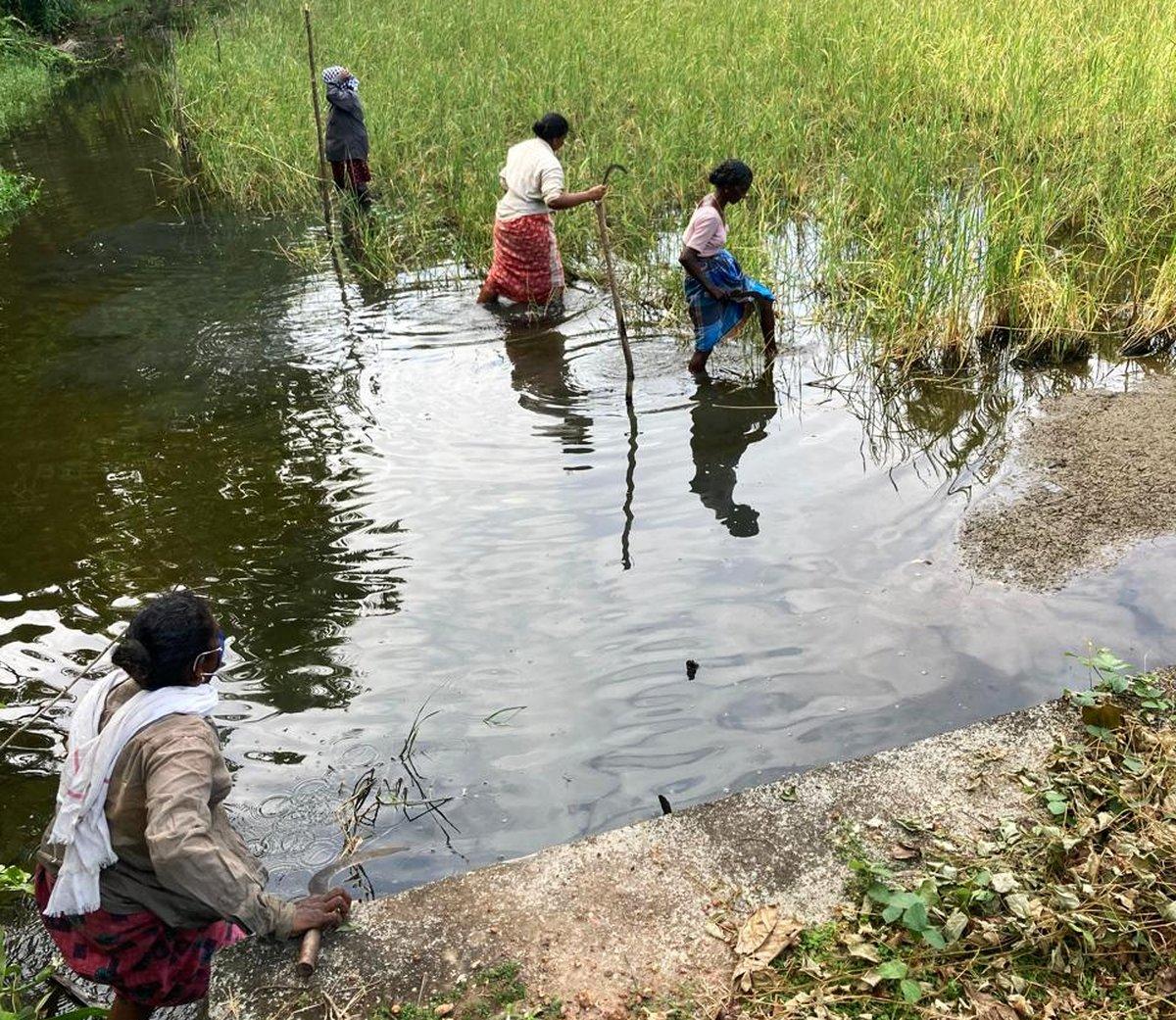
Were you scared to think of farming as a possible retired activity?
Yes, I thought farming and taking care of the land was a daunting task.
But in 2016, I felt I should do something so that I would be of some use to the village. Our family always had a connection with the village.
The question was how to revive farming. I felt it was criminal to let go of the land by not doing anything.
I started with some research on climate change adaptation, and found that quite a lot of money has been going to developing countries as the climate change adaptation fund under the United Nations Framework Convention on Climate Change==.
This was to help countries and communities that are vulnerable to climate change. This had to be used for projects to fight climate change.
That was how I came to know about Dr K G Padma Kumar who had come out with the concept of the One Grain One Fish (Oru Nellum, Oru Meenum) rotational farming model in the low lands of Kuttanad.
Four districts in Kerala which are adjacent to the Arabian Sea follow something called pokkali farming. Because of the proximity to the sea, brackish water enters the backwaters when there is high tide.
So, when the brackish water comes in, paddy cultivation is not possible. Only when it rains and fresh water fills the area that paddy can be cultivated.
Because of this phenomenon, in these four districts, we cultivate paddy that is high (pokam in Malayalam) that can withstand flooding. That's why it is called pokkali farming.
Under the one grain-one fish model, you cultivate prawns instead of paddy when the backwaters is brackish.
Cultivating prawns is a good business model as there is a huge demand in the world market for prawns grown in brackish waters.
I thought the concept was quite interesting and I could use this project for getting the fund.
The fund was 80% of the total expenditure of the project which was an unbelievable amount. We have to put in only 20%.
If not for this fund, I would not have started farming.
I started by building bunds, buying machinery, etc.
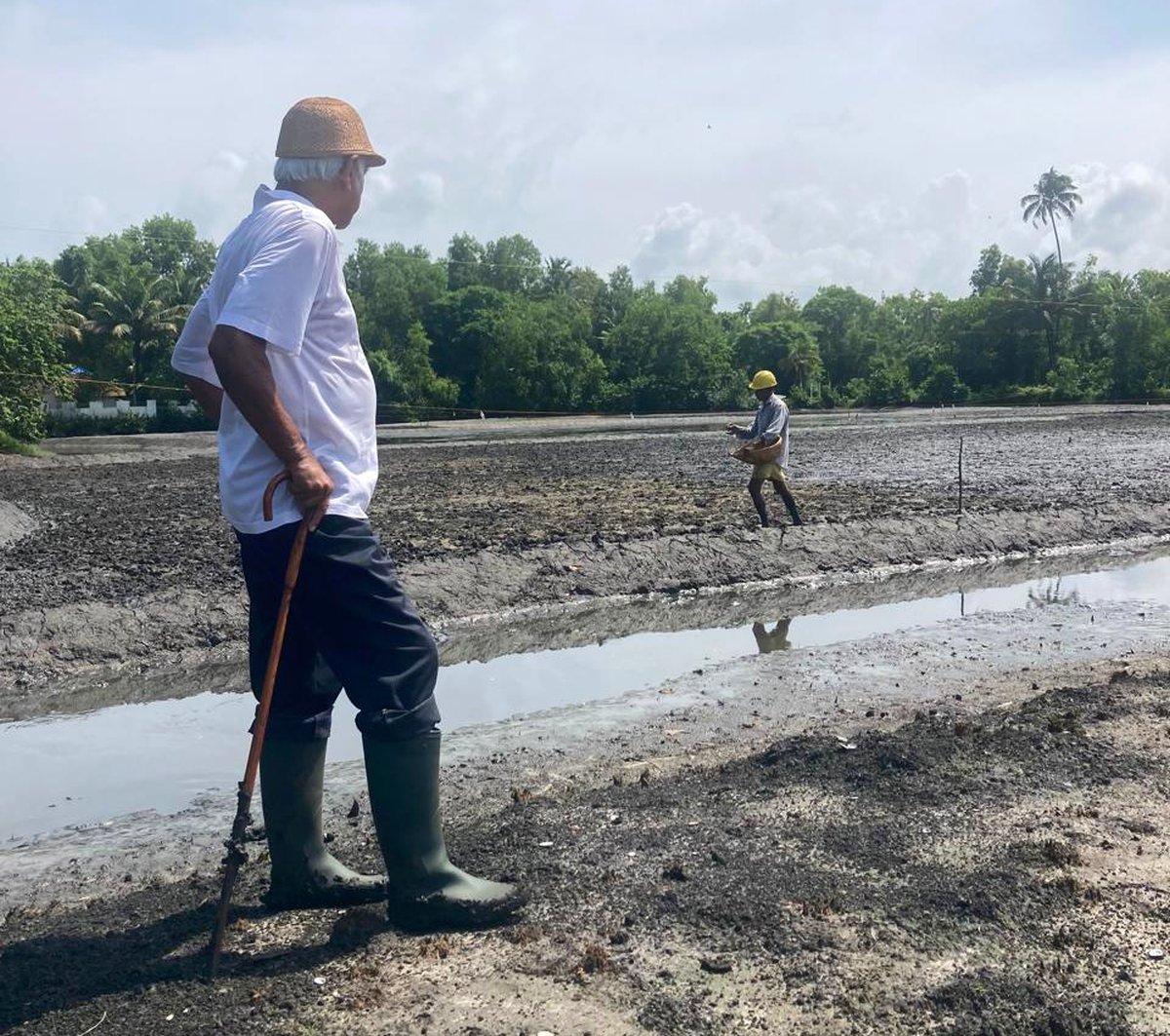
Was the one grain-one fish model successful for you?
Unfortunately, my first prawn farming was a disaster. They got infected with a virus, and I saw hundreds of them dying one by one in front of my eyes.
Yes, people make huge profits from prawn farming.
But even today, I am not making any profits from farming. But it is bearable.
What is important is the contribution to the village. So, when you look at society as a whole, it is a profitable venture.
As a livelihood for them, whatever I am spending is helping the village economy.
Other than those work for me permanently, I employ more people from the village during harvest time.
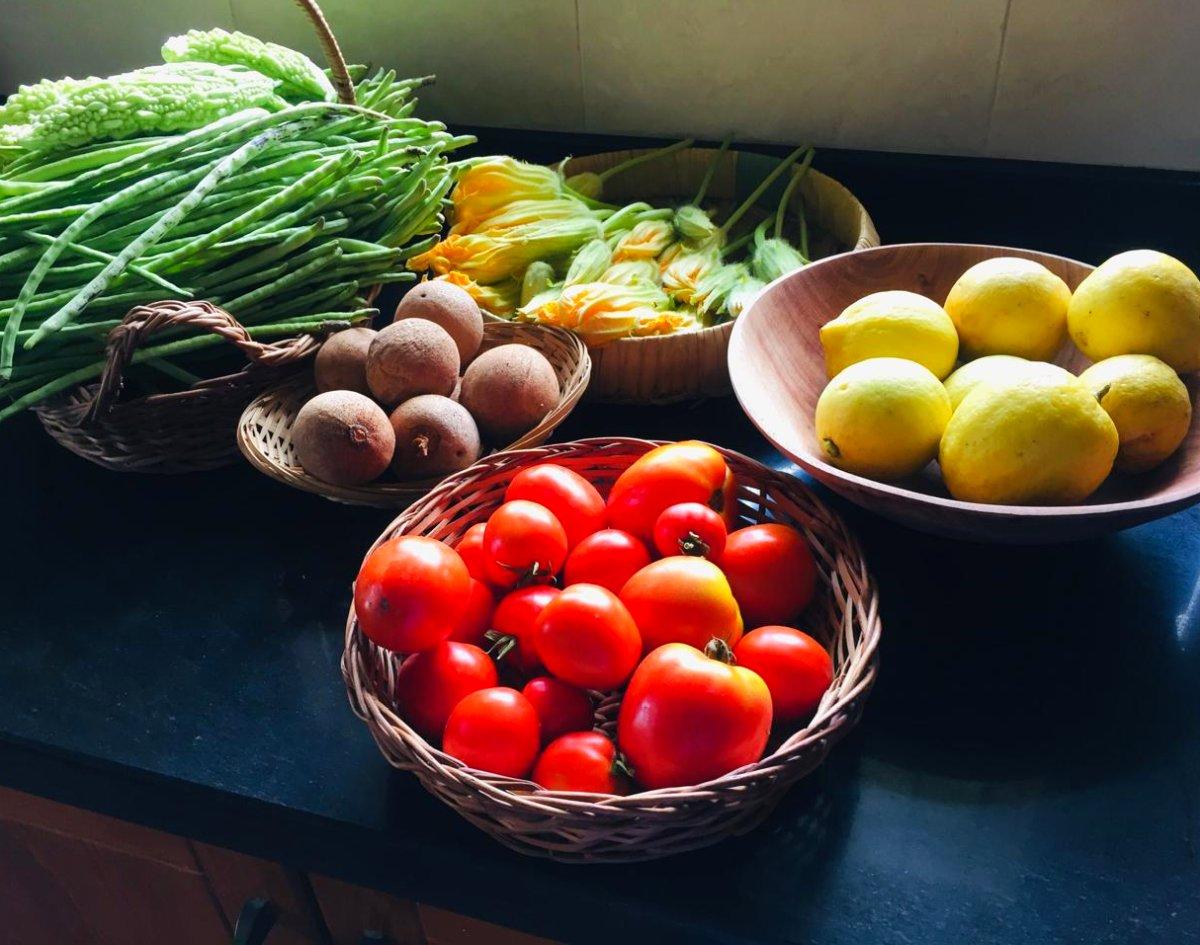
Are there any young people in your village as the complaint is that Kerala has become a geriatric society?
Yes, there are more old people here.
As there are no young people, those who come for harvesting are ladies who went to school with me! And I am 80 years old!
Like good old times, they sing songs during the harvest.
The result is that if it takes 15 days for harvesting in other farms, it may take double the time in my farm.
This is one of the reasons why the profitability factor is not there for me.
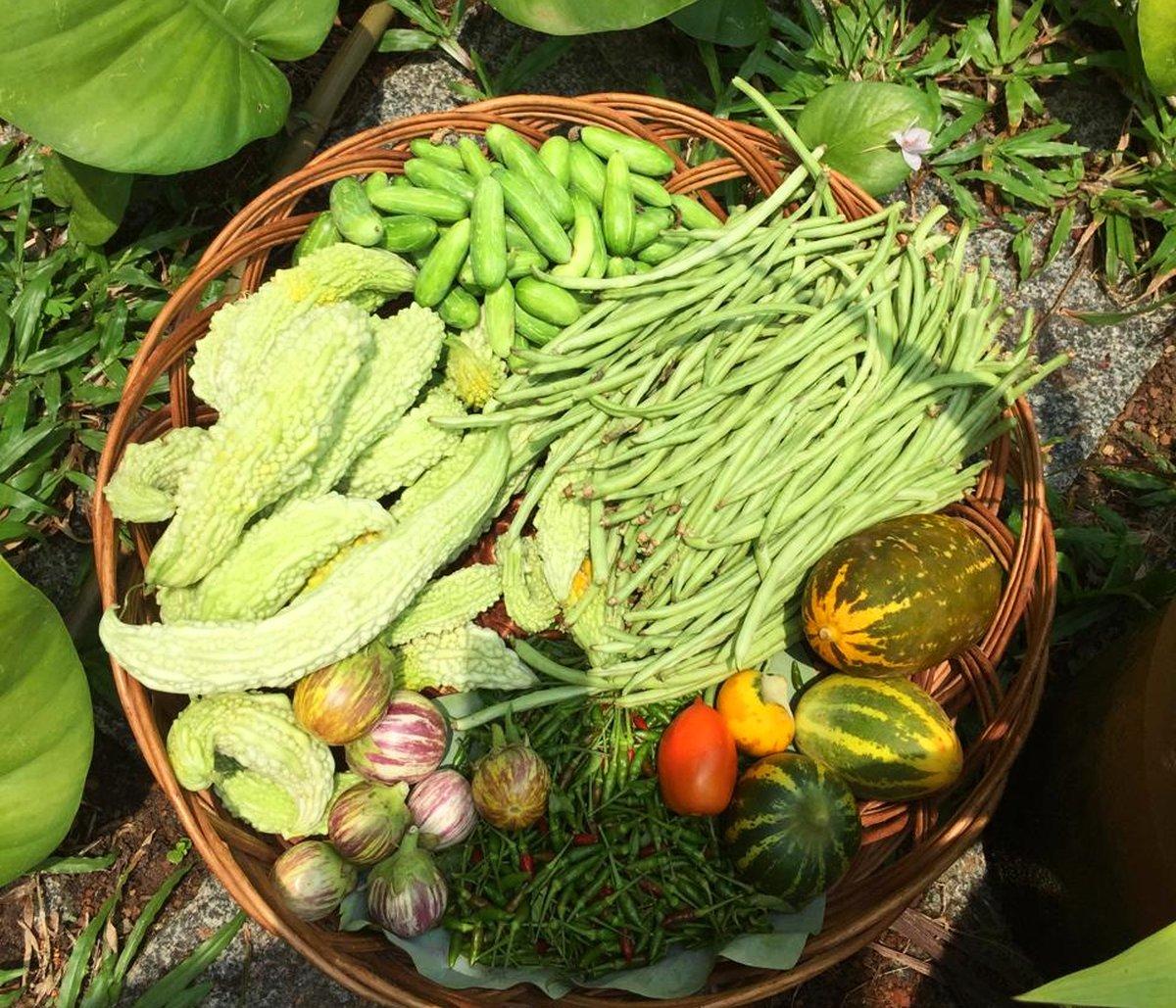
So, farming has not been profitable for you?
It is not. I don't think I ever made any profit from farming. One of the problems is I don't have much expertise in farming or marketing.
I am a farmer who has taken up farming more as a hobby.
The good part is I am still earning from farming at the age of 80!
Another reason for lack of profits is I do organic farming which has tremendous limitations. But I want to make people understand the importance of following organic farming and sustainable living. It is our way of preserving nature.
If there is proper certification, proper marketing and better pricing, organic farming can be profitable. The government has to take the responsibility to do all these.
But the main issue for me is to make people understand the impact of climate change in our lives.
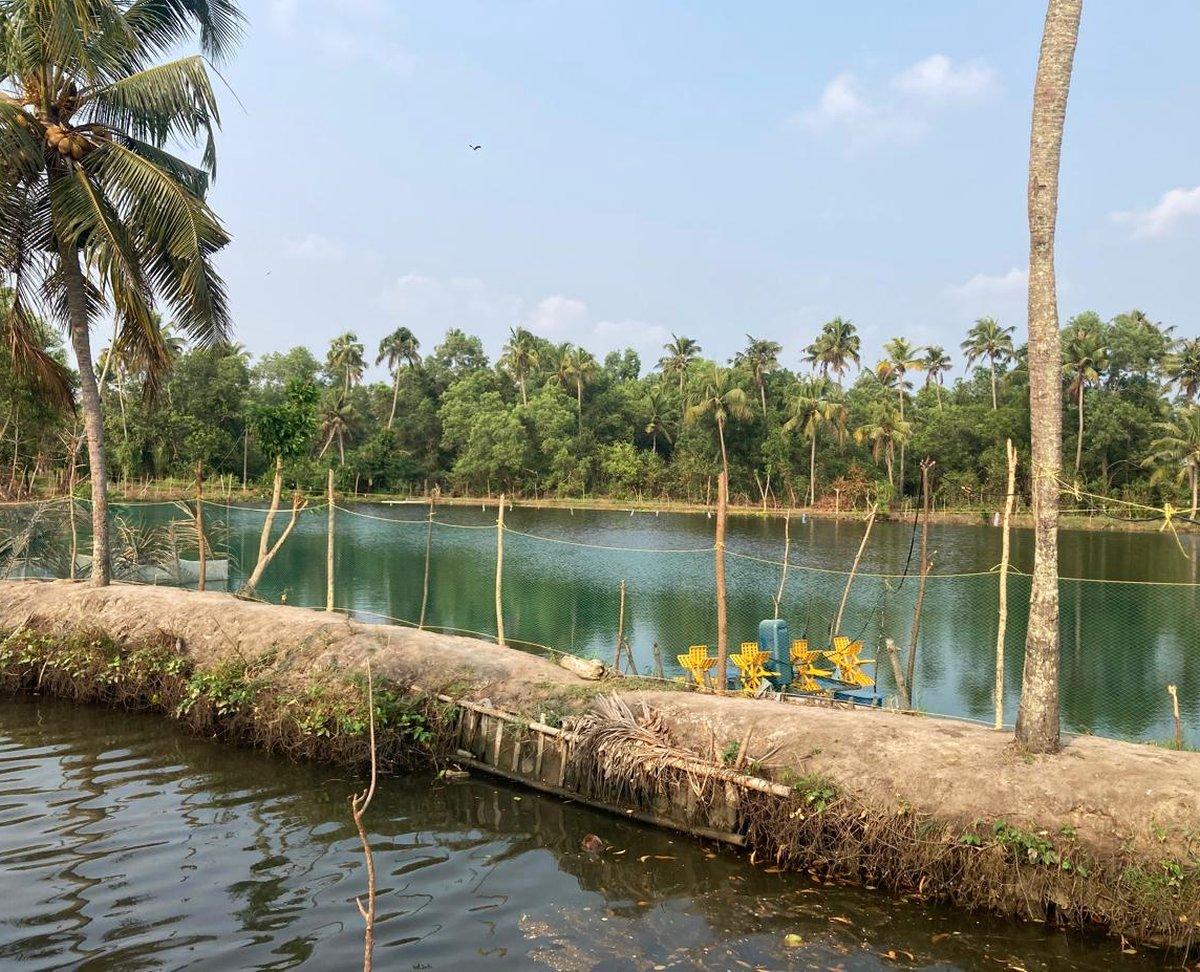
Is not lack of labour a major issue why farming has almost stopped in Kerala. It is said that farm labour today is mainly from Assam, Odisha and Bengal ...
Very true. I have very hardworking youngsters from Assam working for me as regular employees.
Lack of labour is one reason. But machines are available now to reduce labour.
I use technology including drones. So, to some extent, manpower issues have been taken care of.
What is the most enjoyable part of being a farmer?
Everything about farming is enjoyable and relaxing.
The most important thing is we don't buy anything from the market; we have our own rice, fish, coconuts and vegetables.
Yes, I am extremely happy being a farmer.
I couldn't have asked for a better retired life. Of course, it would have been better if I made some profit out of farming!
Feature Presentation: Rajesh Alva/Rediff.com




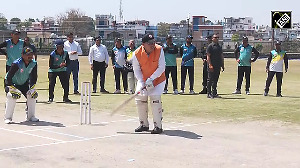

 © 2025
© 2025